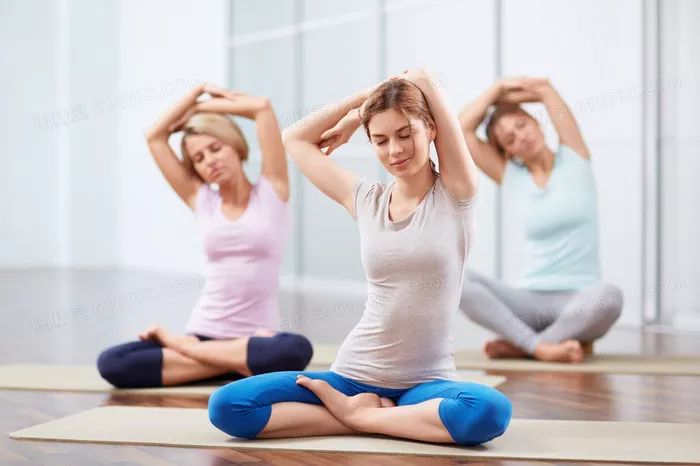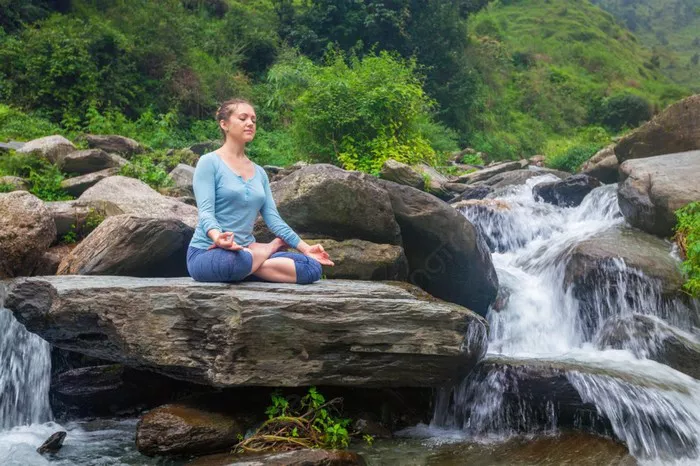Jehatha Yoga, though not as widely recognized as other yoga styles like Hatha or Vinyasa, is a deeply transformative practice that has been quietly gaining traction among yoga enthusiasts and spiritual seekers. Its unique approach to harmonizing the mind, body, and spirit sets it apart, offering practitioners a holistic path to well-being. This article delves into the intricacies of Jehatha Yoga, addressing common questions and providing a detailed exploration of its principles, practices, and benefits.
What is Jehatha Yoga
Jehatha Yoga is a holistic practice that integrates physical postures, breathing techniques, meditation, and philosophical teachings. Unlike more mainstream forms of yoga, Jehatha Yoga emphasizes the meticulous synchronization of breath with movement, creating a seamless, rhythmic flow that enhances both physical flexibility and mental clarity, thereby promoting overall well – being.
The Origins of Jehatha Yoga
Jehatha Yoga traces its roots to ancient Indian traditions, where it was developed as a means to achieve spiritual enlightenment. The practice was initially passed down orally from teacher to student, preserving its authenticity and depth. Over time, it has evolved to incorporate modern insights while maintaining its core principles.
Core Principles of Jehatha Yoga
At the heart of Jehatha Yoga are several key principles that guide its practice:
Breath Awareness: Central to Jehatha Yoga is the focus on breath. Practitioners are taught to synchronize their breath with each movement, fostering a deep connection between the body and mind.
Mindfulness: Jehatha Yoga encourages practitioners to remain fully present during their practice. This mindfulness extends beyond the mat, promoting a heightened awareness in daily life.
Alignment and Posture: Proper alignment is crucial in Jehatha Yoga. Each posture is designed to optimize the flow of energy through the body, enhancing physical health and vitality.
Spiritual Growth: Beyond physical benefits, Jehatha Yoga aims to cultivate spiritual growth. Through meditation and philosophical study, practitioners seek to understand their true nature and achieve inner peace.
The Practice of Jehatha Yoga
Jehatha Yoga is characterized by its fluid, dynamic sequences that seamlessly transition from one posture to the next, guided by the rhythm of the breath. This section explores the various components of a typical Jehatha Yoga session, from warm – up movements to the peak postures and cool – down phases.
Warm-Up and Preparation
Every Jehatha Yoga session commences with a carefully curated warm-up designed to ready the body for the upcoming intense postures. This essential segment may incorporate gentle, full-body stretches that target major muscle groups, deliberate joint rotations to lubricate and loosen the joints, and rhythmic breathing exercises. These practices work in harmony to gradually awaken the body from its resting state, increase blood flow, and simultaneously focus the mind, creating a solid foundation for the more challenging aspects of the session.
Asana Practice
The asana, or posture, practice in Jehatha Yoga is both challenging and rewarding. Each posture is performed with precision and intention, often held for several breaths to deepen the stretch and enhance the flow of energy. Common postures include:
Mountain Pose (Tadasana): A foundational posture that promotes grounding and stability.
Warrior Pose (Virabhadrasana): Strengthens the legs and core while fostering a sense of empowerment.
Tree Pose (Vrksasana): Enhances balance and concentration, encouraging a meditative state.
Breathing Techniques (Pranayama)
Pranayama, or breath control, is a vital aspect of Jehatha Yoga. Various techniques are employed to regulate the breath, calm the mind, and increase vitality. Some common pranayama practices include:
Ujjayi Breath: A deep, rhythmic breath that creates a soothing sound, often used to maintain focus during practice.
Nadi Shodhana (Alternate Nostril Breathing): Balances the nervous system and promotes mental clarity.
Meditation and Relaxation
The practice concludes with a serene period of meditation and relaxation, providing practitioners with a dedicated time to integrate and internalize the benefits of their session. This final segment may involve immersive guided meditation, vivid visualization techniques that promote mental clarity, or simply peacefully resting in Savasana (Corpse Pose), allowing the body and mind to fully absorb and embody the profound effects of the practice.
Benefits of Jehatha Yoga
Jehatha Yoga offers a multitude of benefits that extend far beyond the physical realm, delving deep into mental, emotional, and spiritual dimensions. This section highlights some of the most significant advantages of regular practice, revealing how it can transform your overall well – being.
Physical Benefits
Improved Flexibility and Strength: The dynamic nature of Jehatha Yoga enhances flexibility and builds muscle strength, promoting overall physical health.
Enhanced Posture and Alignment: Emphasis on proper alignment helps correct postural imbalances, reducing the risk of injury and improving body mechanics.
Increased Energy and Vitality: The synchronization of breath and movement boosts energy levels, leaving practitioners feeling invigorated and refreshed.
Mental and Emotional Benefits
Stress Reduction: The mindful approach of Jehatha Yoga helps alleviate stress and anxiety, promoting a sense of calm and relaxation.
Improved Focus and Concentration: Regular practice enhances mental clarity and concentration, benefiting both personal and professional life.
Emotional Balance: By fostering self-awareness and mindfulness, Jehatha Yoga helps practitioners manage their emotions more effectively.
Spiritual Benefits
Inner Peace and Contentment: The spiritual teachings of Jehatha Yoga guide practitioners toward a deeper understanding of themselves, fostering inner peace and contentment.
Connection to the Divine: Through meditation and philosophical study, practitioners cultivate a sense of connection to something greater than themselves, enriching their spiritual journey.
Common Questions About Jehatha Yoga
Is Jehatha Yoga Suitable for Beginners?
Jehatha Yoga is indeed accessible to practitioners of all levels, making it an inclusive practice for everyone. Beginners are warmly encouraged to start with fundamental postures and gradually progress at their own pace as they steadily build strength and flexibility. Instructors, with their expertise, often provide tailored modifications to comfortably accommodate different skill levels and physical capabilities.
How Often Should I Practice Jehatha Yoga?
The frequency of practice hinges on individual goals and personal schedules, as each person’s needs and availability vary widely. For optimal benefits, it is strongly recommended to engage in Jehatha Yoga at least three times a week. This regular commitment allows the body and mind to adapt and grow, and consistency truly stands as the cornerstone to unlocking and experiencing the full spectrum of its remarkable benefits.
What Should I Wear and Bring to a Jehatha Yoga Class?
When engaging in Jehatha Yoga, comfortable, breathable clothing that allows for a full range of motion is ideal. Opting for garments made from moisture-wicking fabrics can keep you dry during intense sessions. A yoga mat is essential, providing cushioning and stability. Additionally, props such as blocks, straps, and blankets may be used to support and enhance the practice, helping beginners ease into poses and enabling more advanced practitioners to deepen their stretches and improve alignment.
Can Jehatha Yoga Help with Specific Health Conditions?
While Jehatha Yoga is not a substitute for medical treatment, it can complement traditional therapies for various health conditions. It is advisable to consult with a healthcare professional before starting any new exercise regimen, especially if you have specific health concerns.
Conclusion
Jehatha Yoga is a profound and transformative practice that offers a holistic approach to well-being. By integrating physical postures, breath control, meditation, and philosophical teachings, it provides a comprehensive path to health and spiritual growth. Whether you are a seasoned yogi or a curious beginner, Jehatha Yoga has something to offer. Embrace the journey, and discover the profound benefits of this ancient practice.
Related Topics






















